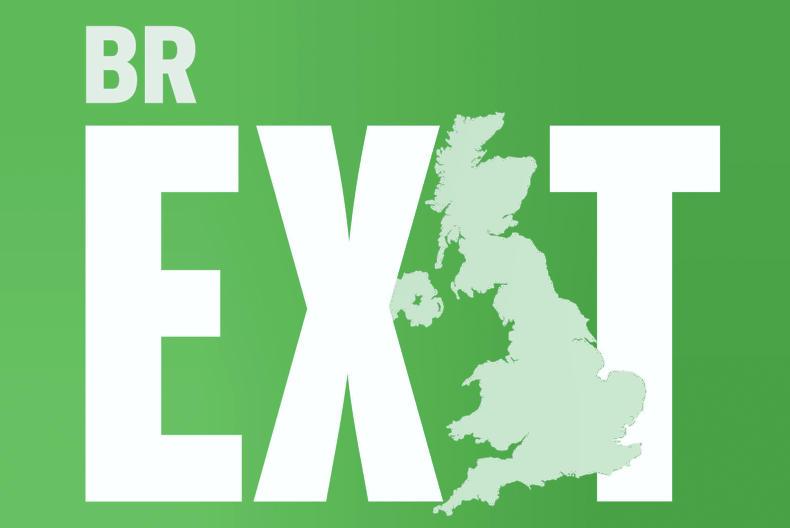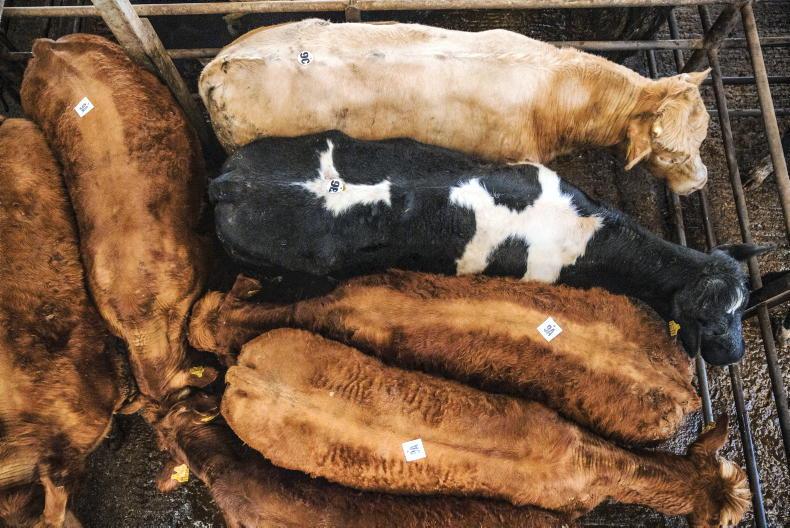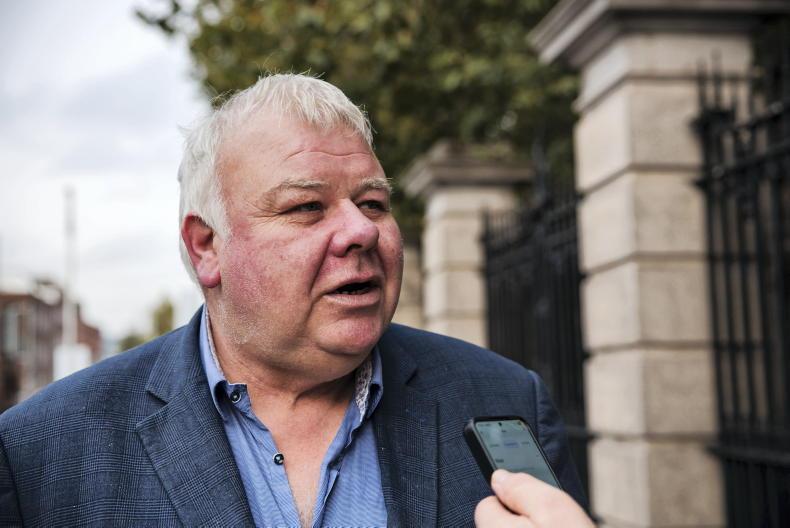The British prime minister, Theresa May, said in her recent big speech that she wants the EU to stay together. But for that to happen, she must surely understand there can be no question of a country, including her own, being offered better terms by the EU, for leaving the EU, than it would obtain if it stayed in the EU.
That is not punishing anybody, it is common sense.
The eventual free-trade agreement the UK wants with EU will not be finalised in Brussels. It will have to be approved by the 27 or more parliaments within the EU. The difficulties Ukraine and Canada have had getting their agreements approved show how unpredictable that may be. Even now the deal with Canada is only provisional, pending a final sign off by, and concessions to, the Waloon Parliament in Namur.
One could easily envisage the Flemish Parliament in Antwerp vetoing the UK deal if it disadvantages the port of Antwerp, through which goods are currently trans shipped to the UK.
Convincing Michel Barnier to agree may be the least of the UK’s negotiating problems.
Two sets of standards
To the extent that the UK diverges from EU standards, the UK businesses will have to apply two sets of standards, one for the UK market, and another for the 45% of UK exports that go to the EU. More paperwork, not less.
Once the UK has left the EU, goods coming into the EU (including into Ireland) from the UK will be subject to checking under rules of origin requirements – in other words to check that they do not contain an undue amount of content that is not from the UK at all, but from elsewhere.
For example, there will have to be checks that UK beef burgers do not contain Brazilian beef. These rules of origin checks will involve a lot of delays, and yet more bureaucracy, which will be especially onerous for small firms.
The UK decision to leave the customs union will create big problems for the Irish retail trade.
Many retail chains treat Ireland as an extension of the UK retail market and have built their distribution chains, their network of warehouses, and their logistics on that basis.
Transiting goods destined for Ireland through the UK, or from Ireland via the UK to continental Europe, will become much more complex. Customs inspections, paperwork and even road use costs may arise. These problems could be mitigated by new customs agreements, but this will not be easy. These problems will be particularly acute for food products, which are perishable.
New ways of getting goods in and out of Ireland, avoiding the UK , may have to be devised. Ireland will need to redirect its transport infrastructure towards the continent and away from UK routes, which will require investment in new infrastructure at ports such as Rosslare and Cork. There will be a good case for the EU to set up a post-Brexit infrastructure fund to help Ireland and other affected countries change their infrastructure to adapt
Theresa May was unclear about the sort of relationship she wants with the EU customs union. She wants bits of it, but not all of it.
Any concessions the UK might get to allow it to be partially in, or partially out, of the EU customs union for a given product or service, will have to be purchased at a price from the EU, and from the other members of the WTO. The whole process will be dragged out by other countries seeking an advantage in an apparently unrelated field. It will drag on, and on.
How should Ireland approach the negotiation of UK exit from the EU?
Obviously, Ireland has more to lose in this than any other EU country.
But Ireland needs to be clear in its own mind that it is in the EU, and intends to stay there. Creating doubts about that would compound the uncertainty that the UK decision has already created.
Ireland has prospered in the EU, in a way it did not prosper before it joined and when it was dependent on the British market. Ireland has prospered thanks to foreign investment, which came to Ireland on the explicit assurance that Ireland would remain in the EU and that firms located in Ireland would have full access to the EU single market. It has also prospered thanks to the Common Agricultural Policy and EU regional funds.
Incidentally, the UK also did better economically in the 43 years since it joined the EU than it did in the period before it did so.
Some have suggested that Ireland detach itself from the common EU negotiating stance. This would be a big mistake, because in trade negotiations, size matters.
Intensely scrutinised
While the negotiations will be conducted by the European Commission, they will be intensely scrutinised at every meeting of the European Council, where Ireland will be represented by the Taoiseach. No move will be made without intense Irish involvement on the EU side.
Irish embassies in every EU capital will be vigilant. Ireland will need to deepen its understanding of the fears and hopes of every one of its 26 EU partners, understand their history, and speak their languages. It is by framing Ireland’s goals in terms that the other 26 can see is in their interests too, that Ireland will maximise its success in the Brexit negotiations.
As Brexit is a British initiative, it is proper that, as the first step, Britain should accompany its application to leave the EU, with a detailed prospectus setting out how the relationship it wants with the customs union might work, and how this might be reconciled with WTO rules.
It is better that the UK identify any legal, practical , and logistical difficulties, for itself and by itself. In that way, it will own the problem, and own the solution.
It is not for the EU to tell the UK what to do, because that would just allow the UK to blame Brussels for the bad news, and blame others for problems that are inherent in what the UK itself is now looking for.
Of course, Ireland can continue to work with the UK on common problems. To the extent that bilateral discussions with the UK can smooth the overall path of the wider negotiations, that would be welcomed by Ireland’s EU partners.
But Ireland would have to be entirely transparent with its EU partners in regard to any discussions it might have with the UK, on any subject that was part of the overall EU-UK negotiations. That is vital.
On issues of importance to Ireland, the extra leverage Ireland will have, as a member of the EU team, will help Ireland get a much better deal than it could ever get, as a smaller country negotiating on its own, with a much bigger UK.
In any negotiation, size matters!
Listen to a discussion on Brexit with Co Cork dairy farmer Seán O’Lionáird in our podcast below:
Listen to “Farmer's views on Brexit” on Spreaker.
Read more
Could Ireland replace British exports to Europe?
WTO quotas in question after Brexit
The British prime minister, Theresa May, said in her recent big speech that she wants the EU to stay together. But for that to happen, she must surely understand there can be no question of a country, including her own, being offered better terms by the EU, for leaving the EU, than it would obtain if it stayed in the EU.
That is not punishing anybody, it is common sense.
The eventual free-trade agreement the UK wants with EU will not be finalised in Brussels. It will have to be approved by the 27 or more parliaments within the EU. The difficulties Ukraine and Canada have had getting their agreements approved show how unpredictable that may be. Even now the deal with Canada is only provisional, pending a final sign off by, and concessions to, the Waloon Parliament in Namur.
One could easily envisage the Flemish Parliament in Antwerp vetoing the UK deal if it disadvantages the port of Antwerp, through which goods are currently trans shipped to the UK.
Convincing Michel Barnier to agree may be the least of the UK’s negotiating problems.
Two sets of standards
To the extent that the UK diverges from EU standards, the UK businesses will have to apply two sets of standards, one for the UK market, and another for the 45% of UK exports that go to the EU. More paperwork, not less.
Once the UK has left the EU, goods coming into the EU (including into Ireland) from the UK will be subject to checking under rules of origin requirements – in other words to check that they do not contain an undue amount of content that is not from the UK at all, but from elsewhere.
For example, there will have to be checks that UK beef burgers do not contain Brazilian beef. These rules of origin checks will involve a lot of delays, and yet more bureaucracy, which will be especially onerous for small firms.
The UK decision to leave the customs union will create big problems for the Irish retail trade.
Many retail chains treat Ireland as an extension of the UK retail market and have built their distribution chains, their network of warehouses, and their logistics on that basis.
Transiting goods destined for Ireland through the UK, or from Ireland via the UK to continental Europe, will become much more complex. Customs inspections, paperwork and even road use costs may arise. These problems could be mitigated by new customs agreements, but this will not be easy. These problems will be particularly acute for food products, which are perishable.
New ways of getting goods in and out of Ireland, avoiding the UK , may have to be devised. Ireland will need to redirect its transport infrastructure towards the continent and away from UK routes, which will require investment in new infrastructure at ports such as Rosslare and Cork. There will be a good case for the EU to set up a post-Brexit infrastructure fund to help Ireland and other affected countries change their infrastructure to adapt
Theresa May was unclear about the sort of relationship she wants with the EU customs union. She wants bits of it, but not all of it.
Any concessions the UK might get to allow it to be partially in, or partially out, of the EU customs union for a given product or service, will have to be purchased at a price from the EU, and from the other members of the WTO. The whole process will be dragged out by other countries seeking an advantage in an apparently unrelated field. It will drag on, and on.
How should Ireland approach the negotiation of UK exit from the EU?
Obviously, Ireland has more to lose in this than any other EU country.
But Ireland needs to be clear in its own mind that it is in the EU, and intends to stay there. Creating doubts about that would compound the uncertainty that the UK decision has already created.
Ireland has prospered in the EU, in a way it did not prosper before it joined and when it was dependent on the British market. Ireland has prospered thanks to foreign investment, which came to Ireland on the explicit assurance that Ireland would remain in the EU and that firms located in Ireland would have full access to the EU single market. It has also prospered thanks to the Common Agricultural Policy and EU regional funds.
Incidentally, the UK also did better economically in the 43 years since it joined the EU than it did in the period before it did so.
Some have suggested that Ireland detach itself from the common EU negotiating stance. This would be a big mistake, because in trade negotiations, size matters.
Intensely scrutinised
While the negotiations will be conducted by the European Commission, they will be intensely scrutinised at every meeting of the European Council, where Ireland will be represented by the Taoiseach. No move will be made without intense Irish involvement on the EU side.
Irish embassies in every EU capital will be vigilant. Ireland will need to deepen its understanding of the fears and hopes of every one of its 26 EU partners, understand their history, and speak their languages. It is by framing Ireland’s goals in terms that the other 26 can see is in their interests too, that Ireland will maximise its success in the Brexit negotiations.
As Brexit is a British initiative, it is proper that, as the first step, Britain should accompany its application to leave the EU, with a detailed prospectus setting out how the relationship it wants with the customs union might work, and how this might be reconciled with WTO rules.
It is better that the UK identify any legal, practical , and logistical difficulties, for itself and by itself. In that way, it will own the problem, and own the solution.
It is not for the EU to tell the UK what to do, because that would just allow the UK to blame Brussels for the bad news, and blame others for problems that are inherent in what the UK itself is now looking for.
Of course, Ireland can continue to work with the UK on common problems. To the extent that bilateral discussions with the UK can smooth the overall path of the wider negotiations, that would be welcomed by Ireland’s EU partners.
But Ireland would have to be entirely transparent with its EU partners in regard to any discussions it might have with the UK, on any subject that was part of the overall EU-UK negotiations. That is vital.
On issues of importance to Ireland, the extra leverage Ireland will have, as a member of the EU team, will help Ireland get a much better deal than it could ever get, as a smaller country negotiating on its own, with a much bigger UK.
In any negotiation, size matters!
Listen to a discussion on Brexit with Co Cork dairy farmer Seán O’Lionáird in our podcast below:
Listen to “Farmer's views on Brexit” on Spreaker.
Read more
Could Ireland replace British exports to Europe?
WTO quotas in question after Brexit









SHARING OPTIONS